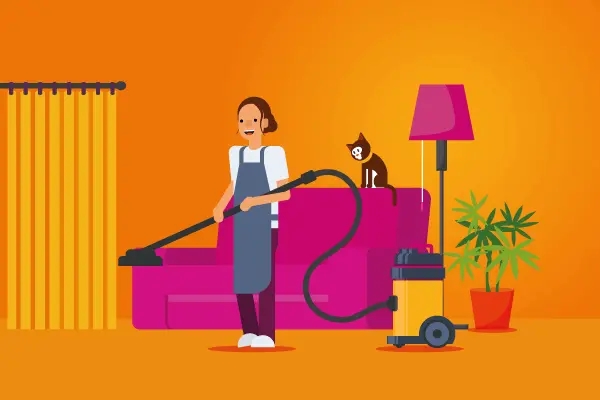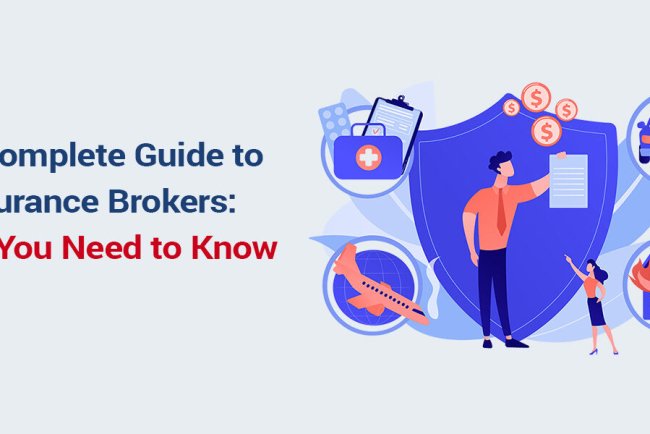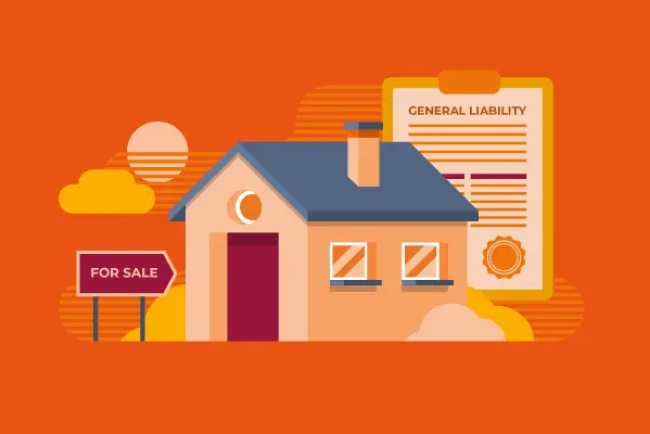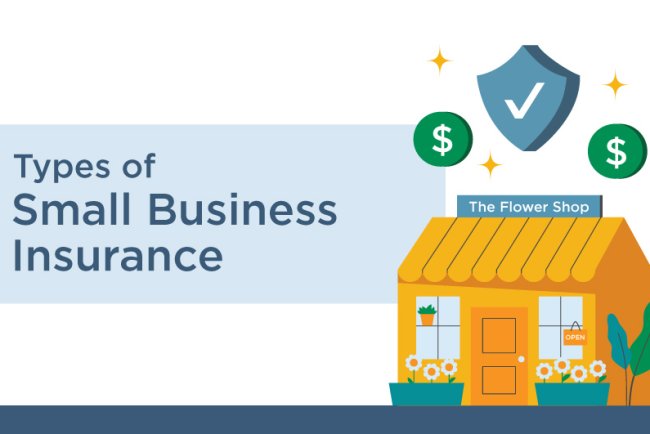Common Insurance Claims in the Cleaning Industry – And How to Avoid Them
Discover how to protect your cleaning business from common insurance claims. Learn about typical issues such as property damage and bodily injury, and get practical tips on training, safety procedures, and insurance coverage to avoid costly claims.

In the bustling world of the cleaning industry, businesses of all sizes face a unique set of risks. From accidental damage to property to liability for injuries, cleaning companies are vulnerable to various insurance claims. In this comprehensive guide, we’ll explore the most common insurance claims in the cleaning industry and offer practical strategies to help you avoid them, ensuring your business remains protected and thrives.
Understanding General Liability Insurance
Before delving into the specifics, it’s essential to understand what general liability insurance is and why it’s crucial for cleaning businesses. General liability insurance provides coverage for claims involving bodily injury, property damage, and advertising injury. It is designed to protect businesses from the financial burden of lawsuits and claims that arise from their operations.
Why General Liability Insurance is Vital for Cleaning Companies
Cleaning companies operate in various environments, from residential homes to commercial properties. With this diverse range of locations comes a higher risk of accidents and damages. General liability insurance acts as a safety net, covering legal costs and potential settlements or judgments that might arise from accidents and claims.
Common Insurance Claims in the Cleaning Industry
-
Property Damage
Scenario: While cleaning a client's home or office, your cleaning staff accidentally spills a cleaning solution on a valuable rug, causing irreparable damage. The client files a claim seeking compensation for the loss.
Prevention Tips:
- Training: Ensure that your staff is well-trained in handling cleaning products and equipment. They should be aware of the potential risks and proper procedures to avoid mishaps.
- Protective Measures: Use drop cloths and other protective materials when working near valuable items or delicate surfaces.
- Liability Waivers: Consider having clients sign a waiver that outlines the risks involved with the cleaning services provided.
-
Bodily Injury
Scenario: A client slips and falls on a wet floor that was recently cleaned by your staff. The client sustains injuries and files a lawsuit against your cleaning business for negligence.
Prevention Tips:
- Signage: Use clear signage to alert clients and other occupants of wet floors or any other potential hazards.
- Safety Protocols: Implement strict safety protocols for cleaning procedures, including thorough drying times and floor mat placement.
- Regular Inspections: Conduct regular inspections of cleaning practices and equipment to ensure they meet safety standards.
-
Client Property Theft or Loss
Scenario: During a cleaning job, a valuable item goes missing from a client’s home. The client accuses your staff of theft and files a claim against your business.
Prevention Tips:
- Background Checks: Perform thorough background checks on all employees to ensure they have a clean record.
- Inventory Tracking: Maintain a detailed inventory of items in clients' properties, especially for high-value items.
- Security Procedures: Implement strict security procedures, including monitoring staff during cleaning jobs and using key control systems.
-
Damage to Third-Party Property
Scenario: While cleaning an office building, your equipment accidentally causes damage to a neighboring business’s property. The neighboring business files a claim for the damages caused.
Prevention Tips:
- Risk Assessment: Conduct a risk assessment of the work environment before starting any job to identify potential hazards and take preventive measures.
- Insurance Coverage: Ensure that your general liability insurance covers damage to third-party property.
- Clear Communication: Communicate with clients and neighboring businesses about potential risks and measures taken to prevent accidents.
-
Injury to Employees
Scenario: An employee is injured while lifting heavy cleaning equipment or while working with hazardous cleaning chemicals. The injured employee files a workers' compensation claim against your business.
Prevention Tips:
- Safety Training: Provide comprehensive safety training for all employees, focusing on proper lifting techniques and safe handling of chemicals.
- Protective Gear: Supply employees with appropriate protective gear, such as gloves, goggles, and masks, to minimize the risk of injury.
- Health and Safety Policies: Develop and enforce health and safety policies to ensure a safe working environment.
How to Avoid Common Insurance Claims
-
Implement Comprehensive Training Programs
Proper training is the cornerstone of preventing many insurance claims. Ensure that all employees are well-versed in cleaning procedures, safety protocols, and the proper use of equipment and chemicals. Regularly update training programs to address new risks and industry standards.
-
Adopt Rigorous Safety Procedures
Safety should be a priority in all cleaning operations. Develop and enforce safety procedures, including the use of warning signs, protective equipment, and safe handling practices. Regularly review and update these procedures to reflect changes in your operations or industry regulations.
-
Maintain Detailed Documentation
Keep thorough records of all cleaning jobs, including any incidents or near-misses. Documenting these details can help protect your business in case of a claim. Additionally, maintain records of employee training, safety inspections, and maintenance of equipment.
-
Invest in Quality Insurance Coverage
Ensure that your general liability insurance policy provides adequate coverage for the specific risks associated with the cleaning industry. Work with an experienced insurance agent to tailor your coverage to your business’s needs and review your policy regularly.
-
Foster a Culture of Safety and Accountability
Promote a culture of safety and accountability within your organization. Encourage employees to report safety hazards, near-misses, and any issues they encounter. Address concerns promptly and take corrective actions to prevent future incidents.
In the cleaning industry, the potential for insurance claims is significant due to the nature of the work and the variety of environments in which cleaning companies operate. By understanding the common types of claims and implementing proactive measures, you can minimize risks and protect your business from financial and reputational damage.
Investing in comprehensive training, adopting rigorous safety procedures, maintaining detailed documentation, securing quality insurance coverage, and fostering a culture of safety are crucial steps in avoiding insurance claims. By taking these steps, you can ensure that your cleaning business operates smoothly, efficiently, and with the confidence that you are well-protected against potential claims.
Frequently Asked Questions (FAQ)
1. What is general liability insurance, and why is it important for cleaning businesses?
General liability insurance provides coverage for claims involving bodily injury, property damage, and advertising injury. For cleaning businesses, it is crucial because it protects against the financial burden of lawsuits and claims that may arise from accidental damage, injuries, or other liabilities related to their services.
2. What are some common insurance claims in the cleaning industry?
Common insurance claims in the cleaning industry include:
- Property Damage: Accidental damage to clients' property during cleaning.
- Bodily Injury: Injuries sustained by clients or others due to cleaning activities.
- Client Property Theft or Loss: Missing valuable items from a client’s property.
- Damage to Third-Party Property: Damage caused to neighboring businesses or properties.
- Injury to Employees: Injuries sustained by employees while performing their duties.
3. How can property damage claims be avoided?
To avoid property damage claims:
- Training: Ensure staff are trained in handling cleaning products and equipment.
- Protective Measures: Use drop cloths and other protective materials.
- Liability Waivers: Consider having clients sign waivers outlining the risks involved.
4. What steps can be taken to prevent bodily injury claims?
To prevent bodily injury claims:
- Signage: Use clear warning signs for wet floors or other hazards.
- Safety Protocols: Implement strict safety protocols and procedures.
- Regular Inspections: Conduct regular inspections of cleaning practices and equipment.
5. How can cleaning companies reduce the risk of client property theft or loss claims?
To reduce the risk of theft or loss claims:
- Background Checks: Perform thorough background checks on employees.
- Inventory Tracking: Maintain detailed inventories of clients' valuable items.
- Security Procedures: Implement security measures, such as staff monitoring and key control systems.
6. What should be done to prevent damage to third-party property?
To prevent damage to third-party property:
- Risk Assessment: Conduct risk assessments before starting any job.
- Insurance Coverage: Ensure your general liability insurance covers third-party property damage.
- Clear Communication: Communicate with clients and neighboring businesses about potential risks.
7. How can cleaning businesses address injuries to employees?
To address employee injuries:
- Safety Training: Provide comprehensive safety training for proper handling of equipment and chemicals.
- Protective Gear: Supply appropriate protective gear, such as gloves and goggles.
- Health and Safety Policies: Develop and enforce health and safety policies.
8. What are the best practices for avoiding insurance claims in the cleaning industry?
Best practices include:
- Comprehensive Training: Ensure all employees receive thorough training.
- Rigorous Safety Procedures: Develop and enforce safety protocols.
- Detailed Documentation: Maintain records of cleaning jobs, incidents, and employee training.
- Quality Insurance Coverage: Work with an insurance agent to ensure adequate coverage.
- Culture of Safety: Foster a culture of safety and accountability within your organization.
9. Why is maintaining detailed documentation important for avoiding insurance claims?
Maintaining detailed documentation helps protect your business by providing evidence of your cleaning practices, safety procedures, and any incidents that occur. This documentation can be crucial in resolving disputes and demonstrating that you took appropriate measures to prevent and address potential issues.
10. How often should a cleaning business review its insurance policy?
A cleaning business should review its insurance policy regularly, at least annually, or whenever there are significant changes to the business operations, such as adding new services or expanding to new locations. Regular reviews ensure that the coverage remains adequate and aligned with the business’s needs.
What's Your Reaction?



















